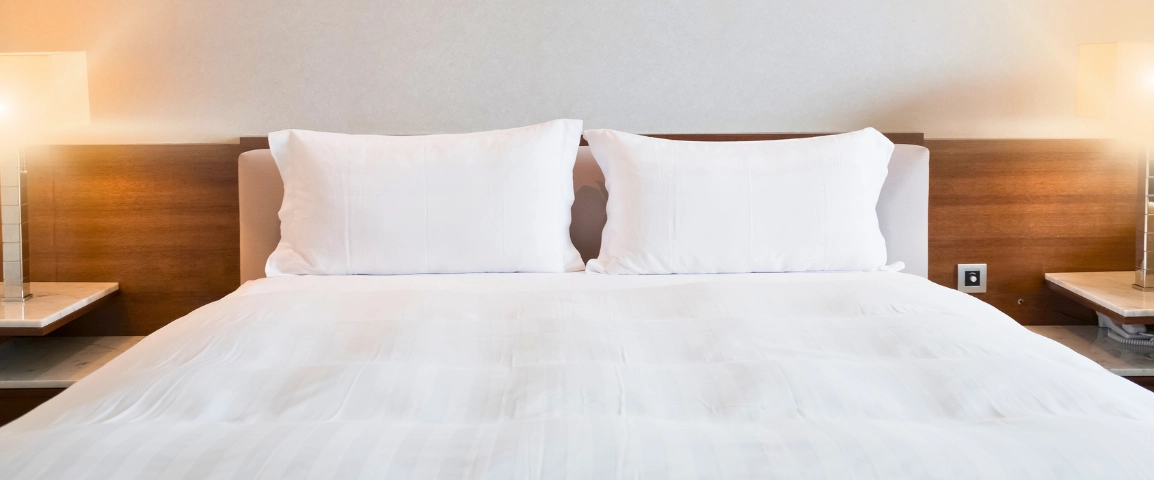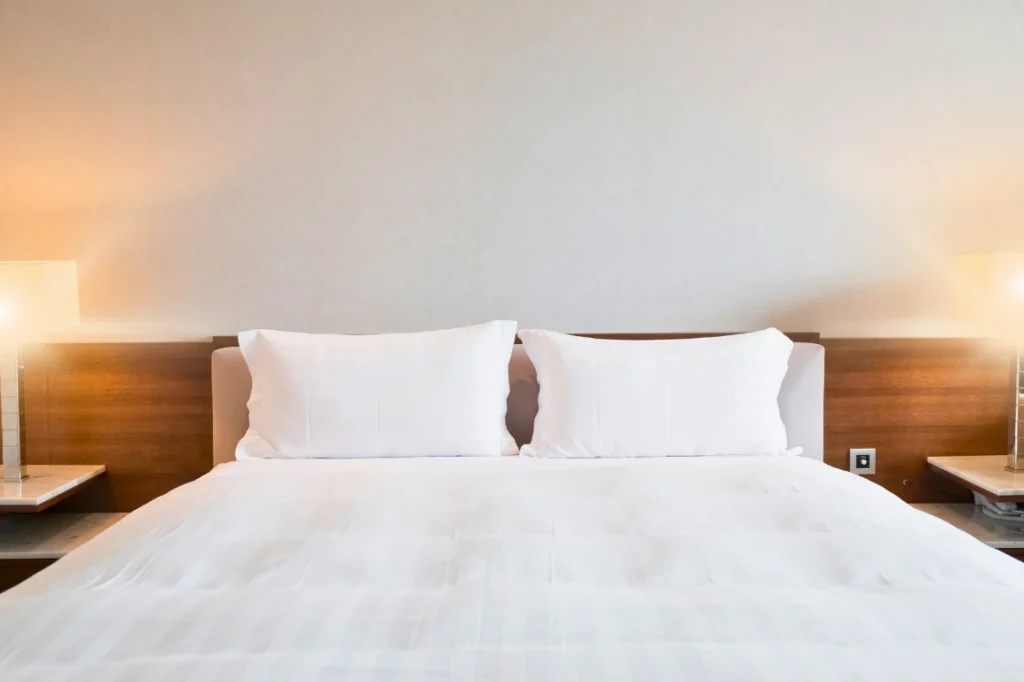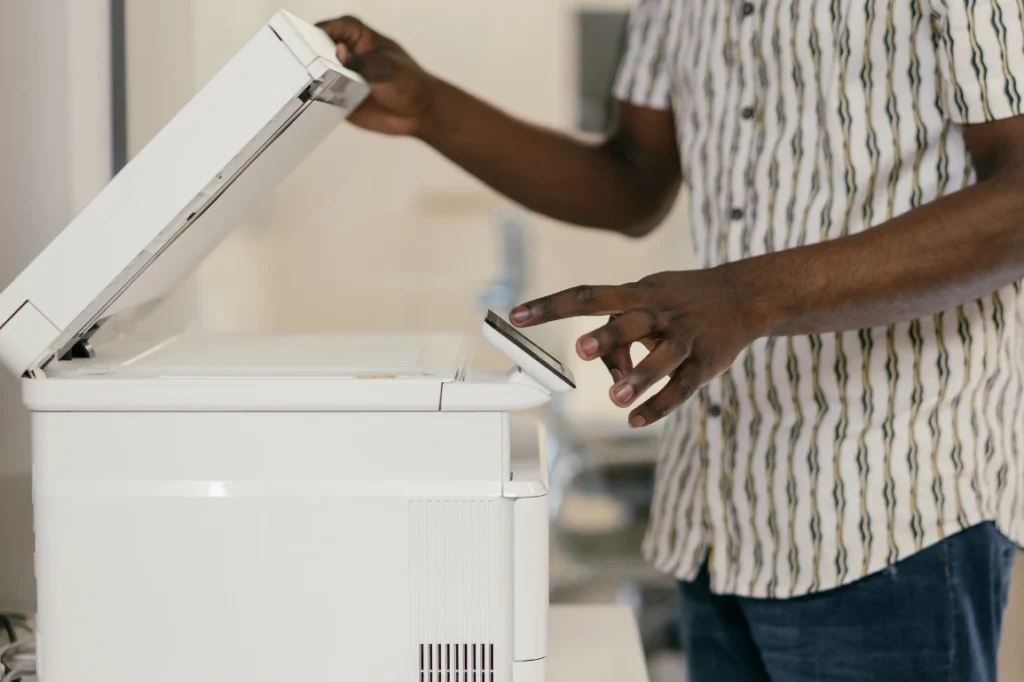Home > Schengen Visa Proof of Accommodations: What to Know

Schengen Visa Proof of Accommodations: What to Know
Updated December 17, 2025
Applying for a Schengen visa is a fairly involved process. If you've done it before, you might be familiar with it. If not, starting can feel a bit overwhelming.
One, you're trying to figure out what you need, then you're also trying to make sure your application is complete and accurate.
Proof of accommodation is one of the (several) Schengen visa requirements you will need to meet.
But what exactly does that mean? What qualifies? Do you need to book a hotel in advance, or can you stay with a friend?
We're here to help give you some clarity about what "counts" as acceptable proof, and how to ensure your visa application is ready to go.

Proof of accommodation: It's mandatory
When you're applying for a Schengen visa, proof of accommodation is mandatory. When you submit your visa application, you have to include proof that you have somewhere to stay.
While there aren’t strict guidelines on the type of accommodations you have to choose, you are required to show proof. The following accommodation types are generally acceptable, provided you have the right proof:
- Staying with a family member or friend.
- Hotel reservations.
- Airbnb, Vrbo, or other vacation rental services.
- Bed and breakfasts or inns.
- Hostels.
- On-campus housing (for students).
- Workplace accommodations (for those traveling on work visas).
- Temporary rentals.
That said, always check with your visa processor or consulate to make sure you meet any specific criteria.
Different types of accommodation may require different types of proof you need to provide, particularly when staying with a family or friend.
Why it's required
Schengen authorities require proof of accommodation to make sure that travelers have adequate arrangements for their visit.
Wait! Don't forget...
You'll also need to show proof of compliant travel insurance at your visa appointment. Get yours online.

What can be used as proof of accommodation
As long as you have accommodations booked/ready, there are several types of documents you can use as proof in your Schengen visa application.
Do note make sure you follow the directions and guidelines you receive from the visa application center/consulate.
Proof of accommodation could be:
Hotel reservations
Hotel reservations work for a Schengen visa application, so long as the dates match those of your visa application. In fact, hotel booking confirmations are one of the most common forms of proof for visa applicants.
Your booking confirmation should include the hotel's name, address, the reservation details, dates of stay, and your name.
Airbnb or other vacation rentals
For Schengen visa applications, Airbnb bookings are generally accepted. That said, it's always best to check with the consulate/embassy of the country you're applying to, just in case there are any limitations or regulations that have changed.
When using Airbnb as proof (or other like services), your booking should contain the host's details, the address, confirmed reservation dates, your name on the booking, etc.

An invitation letter from a host (family, friends, work, etc.)
If you're staying with a relative, friend, or office, you can usually provide a letter of invitation from them.
Typically, the letter needs to include the host's address, proof of their residence (like a utility bill or rental contract), a copy of their ID/passport, and sometimes more. Some countries may require you to have an apostille on one or more of the documents.
The "invitation letter" is often referred to as an accommodation letter for Schengen visa, and it should detail the relationship between your host and you, so family member, colleague, etc.
Invitation letters are often accepted as proof of accommodation, but you need to make sure you have all of the requested information listed as required. Pay close attention to the details, such as whether or not a notary is needed.
Rental agreement
If you've arranged longer-term accommodations, such as renting an apartment, you can typically submit a copy of your legal rental contract as proof.

How to get proof of accommodation for your Schengen visa
While some documents have very strict criteria when it comes to your Schengen visa application (such is the case for insurance), others have a little bit more flexibility.
Schengen authorities want to see that you have a legitimate place to stay while you’re in the Schengen area.
There are a few ways that you can get proof of accommodation, including:
- Booking a hotel or Airbnb: The easiest way to get proof of accommodation is to make a reservation at a hotel or vacation rental platform like Airbnb. Make sure your booking includes all the necessary details (as provided by the visa application center or consulate).
- Letter of invitation: If staying with friends or family, request a formal invitation letter from your host. This letter should clearly state the duration of your stay and details about their residence. Each country may have different requirements when it comes to how this proof needs to be submitted.
- Using a travel agent: Some applicants prefer to go through a travel agency to obtain hotel bookings. Many agencies offer refundable bookings that are tailored to visa application processes.
Proof of accommodation is not optional for Schengen visa applications – it’s a requirement, so make sure you plan accordingly.

Is Airbnb accepted for Schengen visa applications?
Yes, in most cases, you can use an Airbnb reservation as proof of accommodation for a Schengen visa, but the booking must be detailed and complete.
Make sure that the booking includes the host's name, address, the total duration of your stay, and confirmation that the booking has been paid for/is reserved.
With that being said, it's always a good idea to double-check with the visa center, consulate, or embassy where you're submitting your application, as some countries may have specific rules, especially as more and more Airbnb restrictions have come into play in recent years.

Tips for booking your Schengen accommodations
- Make sure you're providing all of the necessary details. Whether you’re submitting a hotel booking, Airbnb reservation, invitation letter, etc., make sure all details are accurate, that they match your travel dates, and adhere to the qualifications provided to you by the visa center (or consulate).
- Double-check the consulate’s specific requirements: Some Schengen countries may have different rules regarding proof of accommodation, especially when staying with friends or family, so it’s always best to check the official checklist you received from the visa application center/consulate.
- Consider booking accommodations that have refund policies. While it isn't fun to think about, just in case your visa is denied, consider making refundable or cancellable bookings.
- Double-check that the dates of your accommodations match the other dates in your application, such as your travel insurance and flight itinerary.
